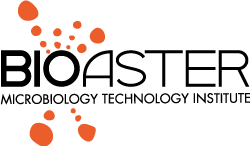BIOASTER, bringing tailor made solutions to identify and master key drivers to improve Bioproduction
The increased demand for biopharmaceutical products has placed immense pressure on production of biologics-based therapeutic drugs (biomanufacturing), especially capacity improvement. Over the past few years, this has been addressed to a certain extent by incremental gains in productivity achieved by strain development, new expression cassettes, media optimization and process optimization. However, there is a crucial need for innovative technologies, being either incremental to sustain the industry, or those that are revolutionary and disrupt it.
BIOASTER, as a Technological Research Institute, aims to support the biopharmaceutical industry to overcome critical research bottlenecks in Bioproduction, i.e. to build with them new technological solutions, to accelerate and rationalize their processes.
Our contribution relies on omics technologies & machine learning as analytical tools to streamline development, bioproduction & advanced biomanufacturing robustness.
Indeed, the multi-omics data acquired from the biomanufacturing process provides the potential to understand to low production efficiency by identifying underlying metabolic bottlenecks or pathway sinks, but also guides the understanding of how these biological systems function.
Furthermore, such multi-omics technologies are constantly improved to expand molecular detection coverage, obtain data with increased accuracy and achieve better computational algorithms, allowing us to create wider and deeper databases to optimize the Design-Build-Test-Learn cycle in the biomanufacturing process.
By collecting, visualizing, and utilizing large multi-omics datasets from various biological systems, with machine learning approaches, we may:
- At a lab scale, characterize & understand the mechanistic & physiological changes occurring in the cell or genetically modified organism, or to improve culture conditions.
- At industrial transposition, identify metabolic bottlenecks or pathway sinks allowing us to optimize culture conditions, identify predictive signature/s and develop advanced analytical tools.
- For biomanufacturing, implement Process Analytical Technologies.
Bioproduction expected out-comes from omics technology & machine learning technologies include:
- Biomass increase by reliably improving microbial fitness.
- Productivity enhancement (quality & quantity), with genetically modified micro-organisms or by adapting the cultivation medium.
- Inter-batch consistency improvement, with tailored monitoring.
- Real-time monitoring of biomanufacturing, to allow controlled continuous cultivation.
